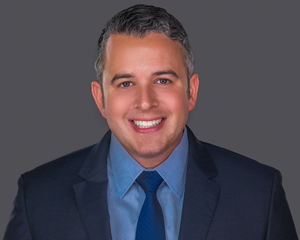Paying Doctors in Florida for Referrals
Healthcare referrals remain a vital part of ensuring top notch patient care. Many times patients require the expertise of a specialist. For example, recurring abdominal pain may require a consultation with a gastroenterologist.
When referrals serve legitimate, diagnostic purposes there is no problem. However, there are ethical and legal concerns when a doctor accepts payment for referring a patient. For this reason, federal and state laws prohibit doctors from accepting kick-backs for referrals.
Legitimate Reasons Doctors Make Referrals
Physicians make referrals to ensure the best possible care for their patients. Sometimes a patient may have a health concern that is beyond a doctor’s area of expertise. Then, it becomes necessary for a referral to the appropriate specialist. Some examples include:
- Specialized Care- The patient requires a specialist to ensure optimal care. For example, if a general practitioner hears an irregular heartbeat, the patient may be sent to a cardiologist.
- Diagnostic Uncertainty- Perhaps a family doctor sees some atypical blood test results. Then, your physician may send you to a specialist for further testing.
- Complex Diagnosis- When a patient has conflicting test results, or a very complicated healthcare issue, primary care physicians may refer the patient to a variety of specialists.
Illegal Patient Referrals
Referrals remain necessary in healthcare. However, it is illegal to receive financial incentives for referring patients to a specific doctor, lab, nursing home, home health services, and more. In other words, doctors may make referrals, they just can’t get paid for doing so. Simply put, a lab may not pay a doctor five dollars for each patient referred to that lab. Each time the doctor receives the five dollar “kickback”, it may be a federal or state crime.
Federal Law Regarding Medical Referrals
Federal laws prohibit physicians from referring Medicare or Medicaid patients to any entity in which they share a financial relationship. For example, if a doctor is part owner of a lab, then it is illegal to refer Medicare or Medicaid patients to that lab. Physicians who send patients to entities they own violate the Stark Law and the Anti-Kickback Statute. These federal laws aim to protect patients from doctors that seek financial gain over patient care.

Florida Law Regarding Medical Referrals
Florida follows federal law regarding Medicare and Medicaid referrals. Additionally, Florida Law goes further than federal law. In the state of Florida, the Florida Patient Brokering Act (PBA) prohibits healthcare providers from offering or accepting forms of payment in exchange for ANY patient referral. So, patients with government insurance, private insurance, or private pay are covered under the PBA.
Penalties
Violation of federal or state laws may carry stiff penalties. In fact, breaking Florida’s Patient Brokering Act may lead to a felony conviction or fines of $50,000 to $500,000. Breaking federal laws may carry stiff financial penalties. Additionally, a federal conviction may include removing a doctor’s ability to work with Medicare or Medicaid patients in the future.
Since the consequences are so dire, it remains important to contact an attorney that specializes in healthcare law. Your attorney may guide you when establishing your practice, or when you decide to invest in other healthcare related businesses. That way, you may avoid any future conflicts of interest. Furthermore, if you are involved in a legal matter regarding referrals, contact your own attorney.
